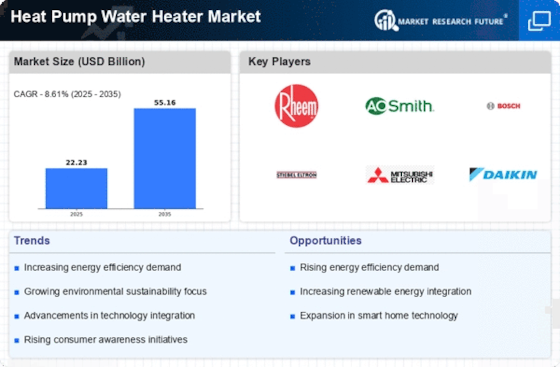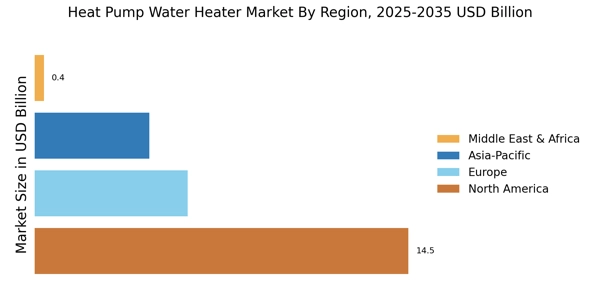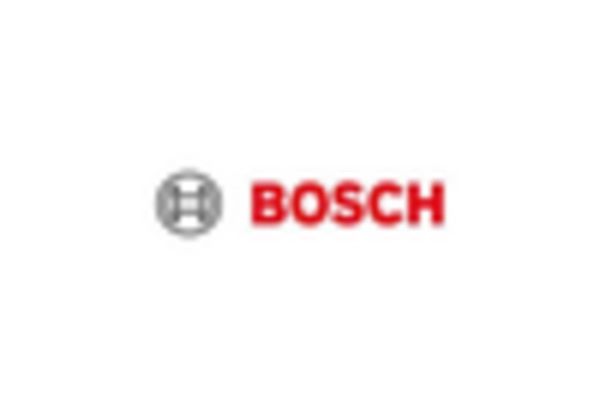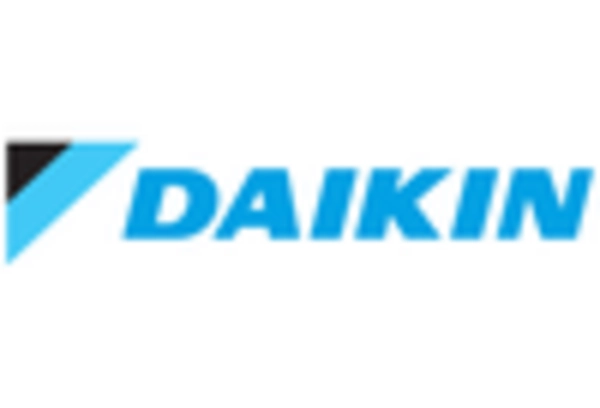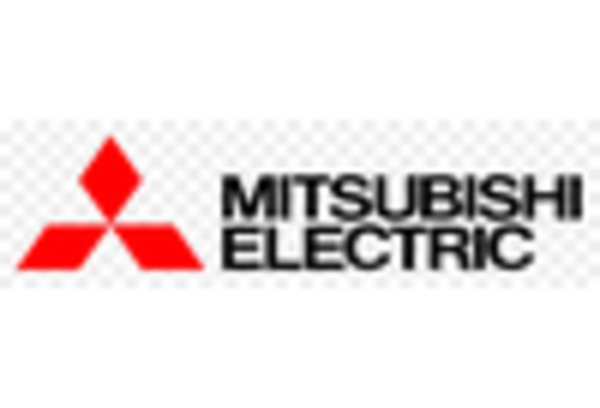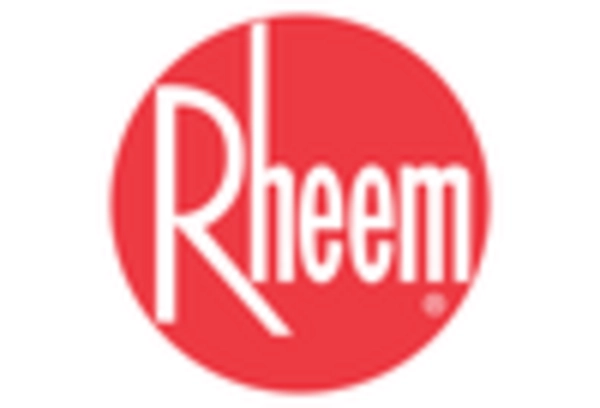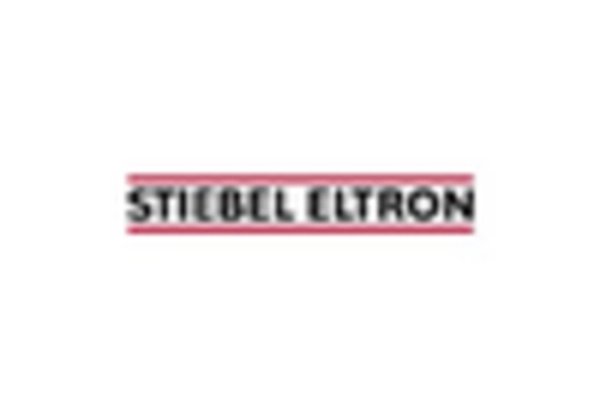Rising Energy Costs
The escalating costs of traditional energy sources are propelling the Heat Pump Water Heater Market forward. As consumers seek more economical alternatives, heat pump water heaters, which utilize electricity more efficiently than conventional systems, become increasingly attractive. Reports indicate that heat pump water heaters can reduce energy consumption by up to 50% compared to traditional electric water heaters. This cost-saving potential is particularly appealing in regions where energy prices are surging. Consequently, the demand for heat pump water heaters is likely to rise as households and businesses aim to mitigate their energy expenses while adopting more sustainable practices. The Heat Pump Water Heater Market is thus positioned to benefit from this trend, as consumers prioritize long-term savings and environmental responsibility.
Environmental Concerns
Growing awareness of environmental issues is significantly influencing the Heat Pump Water Heater Market. As climate change becomes a pressing global challenge, consumers and businesses are increasingly motivated to reduce their carbon footprints. Heat pump water heaters, which operate on renewable energy sources and emit fewer greenhouse gases compared to traditional systems, align well with these sustainability goals. The market data suggests that the adoption of industrial heat pump technology can lead to a substantial decrease in carbon emissions, making it a preferred choice for eco-conscious consumers. This shift towards environmentally friendly solutions is likely to drive the growth of the Heat Pump Water Heater Market, as more individuals and organizations seek to contribute positively to the environment while enjoying the benefits of efficient heating solutions.
Technological Innovations
Technological advancements are playing a pivotal role in shaping the Heat Pump Water Heater Market. Innovations in heat pump technology, such as improved efficiency ratings and smart controls, are enhancing the appeal of these systems. For instance, modern heat pump water heaters are now equipped with advanced features that allow for remote monitoring and control, providing users with greater convenience and energy management capabilities. Market analysis indicates that these innovations not only improve performance but also reduce operational costs, making heat pump water heaters a more viable option for consumers. As technology continues to evolve, the Heat Pump Water Heater Market is expected to witness increased adoption rates, driven by the desire for more efficient and user-friendly heating solutions.
Consumer Awareness and Education
The increasing awareness and education regarding energy-efficient technologies are driving the Heat Pump Water Heater Market. As consumers become more informed about the benefits of heat pump water heaters, including their efficiency and environmental advantages, the demand for these systems is expected to rise. Educational campaigns and resources provided by manufacturers and energy organizations play a crucial role in disseminating information about the operational savings and long-term benefits associated with heat pump technology. Market trends indicate that regions with higher levels of consumer education tend to show greater acceptance and adoption of heat pump water heaters. This growing awareness is likely to propel the Heat Pump Water Heater Market forward, as more consumers seek to make informed choices that align with their energy-saving goals.
Government Policies and Incentives
Supportive government policies and incentives are significantly impacting the Heat Pump Water Heater Market. Many governments are implementing programs aimed at promoting energy efficiency and renewable energy adoption. These initiatives often include tax credits, rebates, and grants for consumers who choose heat pump water heaters over traditional systems. Such financial incentives can substantially lower the initial investment costs, making heat pump technology more accessible to a broader audience. Data suggests that regions with robust incentive programs experience higher adoption rates of heat pump water heaters, indicating a direct correlation between government support and market growth. As these policies continue to evolve, the Heat Pump Water Heater Market is likely to expand, driven by increased consumer participation and investment.


